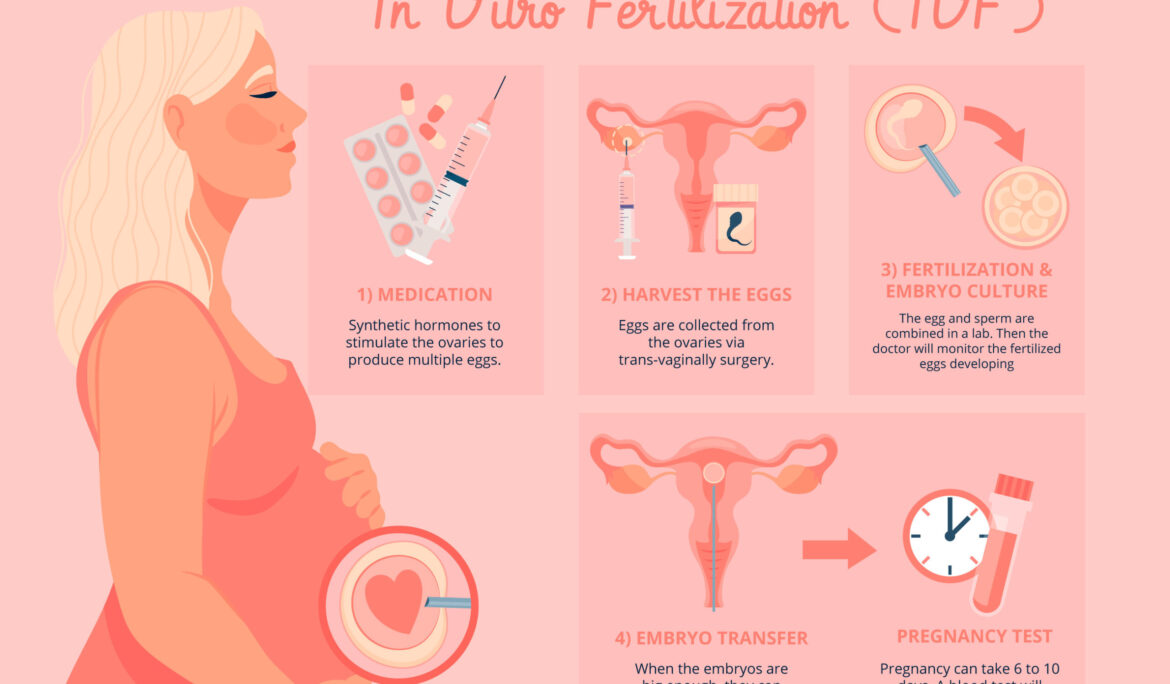What Can I Expect During Each Stage of IVF?


In Vitro Fertilization (IVF) is a complex but well-established fertility treatment that can offer hope to many couples struggling with infertility. Understanding what to expect during each stage of IVF can help ease anxiety and prepare you for the journey ahead. This comprehensive guide breaks down the IVF process into clear, manageable steps.
| IVF STAGE | WHAT TO EXPECT | DURATION | PURPOSE |
|---|---|---|---|
| Initial Consultation | Medical history review, physical exam, blood tests, semen analysis | 1-2 visits | Develop personalized treatment plan |
| Ovarian Stimulation | Injectable fertility medications, regular monitoring | 10-14 days | Produce multiple mature eggs |
| Egg Retrieval | Sedated procedure to collect eggs | 20-30 minutes | Collect mature eggs for fertilization |
| Sperm Collection | Sperm sample collection and fertilization in the lab | Same day as retrieval | Create viable embryos |
| Embryo Culture | Monitoring and selecting best-quality embryos | 3-5 days | Optimal embryo development |
| Embryo Transfer | Transfer of embryos into the uterus | 10-15 minutes | Place embryos for implantation |
| Luteal Phase Support | Progesterone supplements, monitoring hormone levels | Until pregnancy test | Support early pregnancy |
| Pregnancy Test | Blood test to measure hCG levels | 10-14 days post-transfer | Confirm pregnancy |
| Follow-Up and Monitoring | Additional tests and ultrasounds, transition to OB/GYN | Early pregnancy | Ensure health and development of the pregnancy |
1. Initial Consultation and Assessment
What to Expect:
- Medical History Review: Your fertility specialist will review your medical history, previous fertility treatments, and any relevant health conditions.
- Physical Examination: A thorough physical examination, including an ultrasound, to assess your reproductive organs.
- Blood Tests: Hormone level testing, ovarian reserve assessment, and infectious disease screening.
- Semen Analysis: For male partners, a semen analysis to evaluate sperm count, motility, and morphology.
Purpose:
- To determine the underlying cause of infertility and develop a personalized treatment plan.
2. Ovarian Stimulation
What to Expect:
- Fertility Medications: You will be prescribed injectable fertility medications to stimulate your ovaries to produce multiple eggs.
- Monitoring: Regular blood tests and ultrasounds to monitor your hormone levels and the development of follicles (egg sacs).
Duration:
- Typically lasts 10-14 days.
Purpose:
- To produce multiple mature eggs for retrieval.
3. Egg Retrieval
What to Expect:
- Procedure: Performed under sedation, a needle is used to retrieve eggs from the ovaries through the vaginal wall.
- Post-Procedure: Mild cramping and spotting are common. Recovery is usually quick, and you can resume normal activities the next day.
Duration:
- The procedure itself takes about 20-30 minutes.
Purpose:
- To collect mature eggs for fertilization.
4. Sperm Collection and Fertilization
What to Expect:
- Sperm Collection: On the same day as egg retrieval, a sperm sample is collected from the male partner or a sperm donor.
- Fertilization: Eggs are combined with sperm in the lab to create embryos. This can be done via conventional insemination or Intracytoplasmic Sperm Injection (ICSI), where a single sperm is injected directly into an egg.
Duration:
- Fertilization occurs within a few hours of egg retrieval.
Purpose:
- To create viable embryos for transfer.
5. Embryo Culture
What to Expect:
- Monitoring: Embryos are cultured in the lab for 3-5 days. Embryologists monitor their development and select the best-quality embryos for transfer.
- Updates: You will receive updates on the progress of your embryos.
Duration:
- Typically 3-5 days.
Purpose:
- To allow embryos to reach an optimal stage for transfer or freezing.
6. Embryo Transfer
What to Expect:
- Procedure: A catheter is used to transfer one or more embryos into the uterus. This is a simple, painless procedure that does not require anesthesia.
- Post-Procedure: You may be advised to rest for a short period, but you can generally resume normal activities soon after.
Duration:
- The procedure takes about 10-15 minutes.
Purpose:
- To place embryos into the uterus where they can implant and develop into a pregnancy.
7. Luteal Phase Support
What to Expect:
- Medications: Progesterone supplements are often prescribed to support the uterine lining and promote embryo implantation.
- Monitoring: Blood tests to monitor hormone levels and ensure the best environment for implantation.
Duration:
- Until the pregnancy test.
Purpose:
- To support early pregnancy and enhance the chances of successful implantation.
8. Pregnancy Test
What to Expect:
- Blood Test: Approximately 10-14 days after the embryo transfer, a blood test will measure the level of hCG (human chorionic gonadotropin) to confirm pregnancy.
- Results: You will receive the results within a few hours to a day.
Purpose:
- To determine if the IVF cycle has resulted in pregnancy.
9. Follow-Up and Early Pregnancy Monitoring
What to Expect:
- Additional Tests: If the pregnancy test is positive, you will have follow-up blood tests and ultrasounds to monitor the pregnancy’s progress.
- Transition to OB/GYN: Once the pregnancy is stable, you will transition to your regular OB/GYN for ongoing prenatal care.
Purpose:
- To ensure the health and development of the pregnancy.
Conclusion
The IVF process involves multiple stages, each critical to achieving a successful pregnancy. From the initial consultation to the final pregnancy test, understanding what to expect at each stage can help you prepare emotionally and physically for the journey ahead. By working closely with your fertility specialist, you can navigate the IVF process with confidence and hope.
For more information please do not hesitate to contact us.



